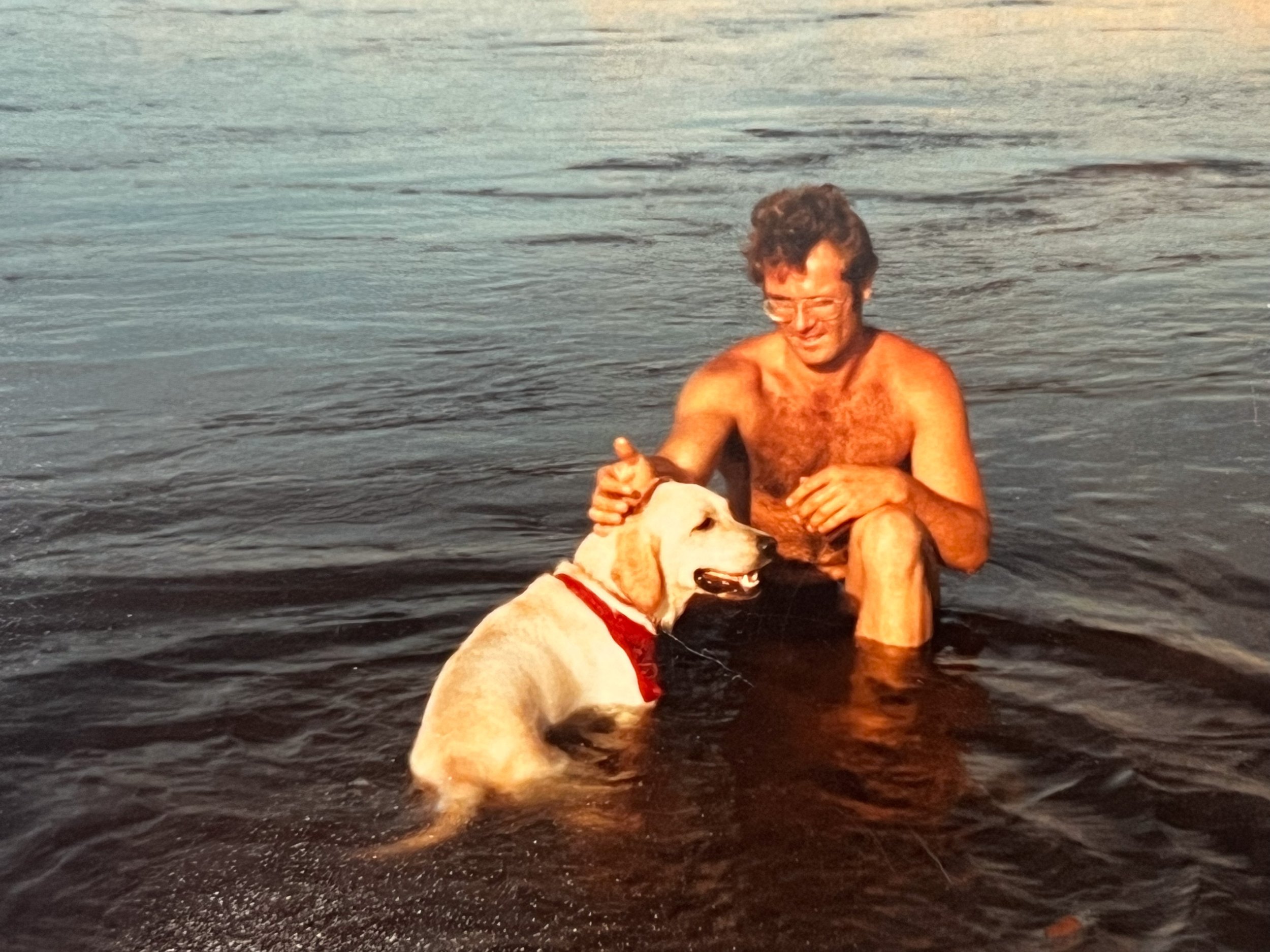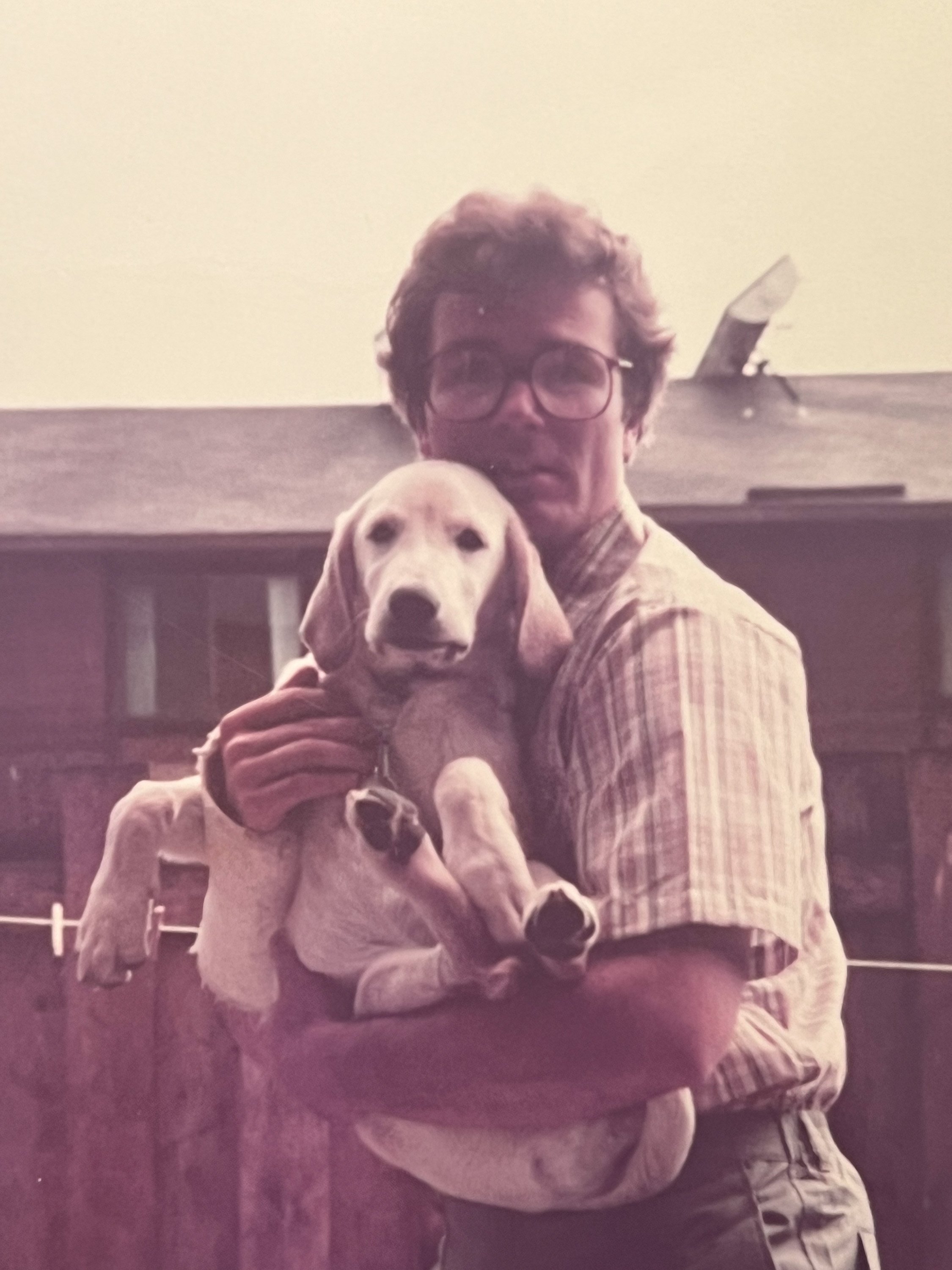Saying Goodbye: How Dogs Help Humans In Times of Loss
Last week, James bid a heartfelt goodbye to his father, Elven, a time spent carefully arranging his final affairs. While combing through his effects, we discovered old photographs that showcased Elven's deep affection for animals, particularly his beloved hunting dogs, which were a defining part of his life, a constant source of joy and companionship. James has inherited this profound love for animals from his father, a connection that would become especially meaningful during his visits to Utah as a young boy.
As James ventured away from home to spend time with his father, the unfamiliar surroundings caused deep homesickness It was during these moments of longing that his loyal canine companion, Ripley, came to his rescue. Ripley's unwavering presence brought solace, their explorations through the untamed wilderness forging memories that would endure.
The weight of homesickness slowly lifted as James and Ripley grew closer, and their bond deepened. The once-dreaded trips to visit his father now held a promise of adventures shared with his faithful dog. Ripley's companionship was a balm for James' heart, transforming the forlornness of being away from home into a newfound sense of belonging.
Though the days have been filled with tasks lately, the upcoming weeks are likely to be emotionally taxing. Grief is a personal odyssey, especially in the wake of losing a loved one. It's a journey fraught with challenges, one that necessitates understanding and support from those around us. During these trying times, the presence of a loyal and loving dog can offer solace and strength to those navigating the complex terrain of grief.
1. Unconditional Love and Support
Dogs are renowned for their unwavering loyalty and boundless affection for their human companions. In the face of the loss of a loved one, the emotional support and unwavering love that a dog provides can be an immense comfort. Dogs possess an innate ability to be nonjudgmental, offering a sense of security and companionship that can be profoundly reassuring during the darkest hours of grief.
2. Routine and Structure
Grief often disrupts daily routines, leaving individuals feeling adrift in a sea of uncertainty and chaos. Dogs thrive on routine and structure, requiring regular walks, meals, and playtime. Caring for a dog can instill a sense of purpose and stability, particularly when life feels tumultuous and unpredictable. The responsibility of tending to a furry friend can help establish a daily routine that reintroduces a semblance of normalcy to life.
3. Physical Activity and Stress Reduction
Exercise is a well-documented stress reliever, and dogs excel at motivating their owners to stay active. Regular walks and playtime with a canine companion offer not only physical health benefits but also release endorphins, which can significantly improve mood and reduce stress. Engaging in physical activities with your dog can channel grief-related emotions constructively, providing moments of happiness and laughter amidst the sorrow.
4. Emotional Expression and Catharsis
Grief can often feel overwhelming, and it's crucial to find healthy outlets for the pent-up emotions it brings. Dogs possess an innate sense of empathy, often intuitively understanding when their owners are sad or distressed. Their presence creates a safe space in which to express emotions without fear of judgment. Whether you talk to your dog, cry in their presence, or simply hold them close for comfort, this emotional release can be remarkably cathartic and soothing.
5. Social Connection
Grief can be an isolating experience, as friends and family may struggle to fully grasp the depths of one's pain. Dogs, on the other hand, are social creatures that can bridge the gap of loneliness. They encourage interaction with others through walks in the park or visits to dog-friendly places, fostering opportunities for social connections that can aid in the healing process.
6. Mindfulness and Living in the Moment
Dogs excel at living in the present moment, a valuable lesson for those grappling with grief. They do not dwell on the past or worry about the future; instead, they wholeheartedly embrace the here and now. Spending time with your dog can foster mindfulness, helping you appreciate the simple joys of life and temporarily escape the weight of grief.
Conclusion
The loss of a loved one is a deeply personal and painful experience that can leave an irreplaceable void in one's heart. While no one can replace the person you have lost, dogs possess a unique ability to offer solace and support during the grieving process. Their unconditional love, unwavering companionship, and capacity to provide structure and routine can be invaluable in helping individuals navigate the arduous journey of grief.
For those grappling with the loss of a loved one, considering the healing power of a canine companion may offer a ray of hope amidst the darkness. Although they cannot erase your pain, dogs can provide a comforting presence and assist in the healing process. They can help you find moments of joy, solace, and connection during the challenging journey of grief. Remember that grief is a journey, and the steadfast support of a loyal dog can be a comforting and therapeutic companion along the way.
Upon hearing of his death, I immediately wrote this with tears streaming down my face.
I always knew this day would come.
I had rehearsed this going a hundred different ways.
Slowly, I grieved each time I’d say goodbye
Loving someone from a distance, through letters, photographs, and faint memories; many filled with smells tied to emotions one struggles to fully articulate.
These memories become the patchwork of who we are and how we see ourselves. They become us. All of it. Tangled and complicated.
Memory and man.
We try to make sense of this narrative that has become our life. One we didn't author, filled with more questions than answers.
We look for meaning and purpose to it all;
The 25,605 days that make a life.
A life that you were a part of and came from.
We try to make all the pieces fit and to make sense of ourselves.
We create scenarios and alternative realities that are more palatable and to our liking.
We rationalize the unexplainable and look for the good in a sea of grey.
How can this be it?
The last conversation, the last memory. Really?
I always uttered, "This could be the last time I see him."
A sobering statement that was meant to wake me from the numbness and make me feel the loss in advance.
He's gone.
"We didn't get to spend much time together."
Words last uttered and unfettered.
Calloused to what it means and the weight it carried for both of us.
Time.
Time spent doing so many other things.
We can't go back.
But he couldn't move forward either.
Stuck.
A pattern of rehearsed stories holding him captive to a past.
Injustice?
A cycle of hurt.
A weight I no longer carry.
Generations.
We're left with words and maybe that's all we really ever had.
A voice.
Words spoken and unspoken
Said to ourselves
Some to others
Written words
Our perspective
Wanting to be known.
Understood.
To be heard.
To not feel broken, yet loved regardless.
Seeking to be loved and then loved in return.
It is much easier to fixate on something painful than it is to try and solve the thing that caused us all the pain in the first place.
The paths we walk each day in our mind only get more worn with time.
Gratitude or Discontent.
Blessing or curse.
Our proverbial glass resting at its predetermined setpoint.
Death and life are in the power of the tongue
Can we be kind even to ourselves?
Broken relationships are like shipwrecks on the sea of our lives.
Storms constituted of equal parts pride and trauma.
One being a mechanism against the other.
We survive.
But not unscathed.









